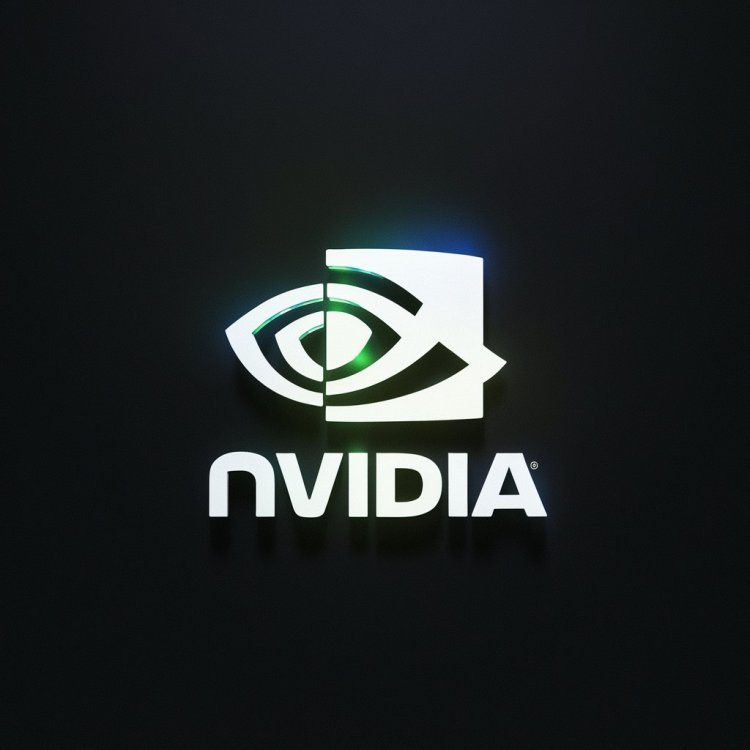The AI Chip Race: A Battle Beyond Training - Innovation Brews for Deployment and Specialization
This article explores the current landscape of AI chips, highlighting Nvidia's dominance in training and the rise of challengers focused on deployment efficiency. It discusses the potential for new ventures in specialized AI and custom chip design and concludes by outlining the future of the AI chip ecosystem, emphasizing collaboration, open-source hardware, and ethical considerations.

The AI Chip Race: A Battle Beyond Training - Innovation Brews for Deployment and Specialization
The throne of AI chips currently belongs to Nvidia. Their dominance in training massive generative AI language models, like those capable of crafting realistic dialogue or generating creative text formats, is undeniable. These models require immense computational power, and Nvidia's Graphics Processing Units (GPUs) have become the undisputed champion for this task. Their powerful parallel processing architecture allows them to handle the complex calculations involved in training massive neural networks. This dominance is evident in the widespread adoption of Nvidia's hardware by leading AI research labs and companies like Google and OpenAI.
However, the AI chip race extends far beyond just training. Training a giant AI model is just the first step. The real challenge lies in deploying it efficiently at scale. This is where the narrative shifts and new players are emerging to challenge Nvidia's reign.
The Deployment Dilemma: Where Efficiency Reigns Supreme
While Nvidia dominates the training space, a crucial gap exists – deployment. Running these powerful AI models in production environments can be incredibly expensive due to the high power consumption of general-purpose GPUs. This is where companies like Groq are entering the scene. They're building chips specifically designed for deploying AI models. Unlike general-purpose GPUs, these deployment-focused chips are optimized for the specific tasks AI models perform, offering significant advantages like lower power consumption and higher throughput.
The ability to deploy AI models efficiently is a game-changer. Companies across various industries are grappling with the high costs associated with running large language models in production. Groq's approach, and that of other similar companies, has the potential to unlock the true potential of AI by making it more accessible and cost-effective for businesses of all sizes.
The Acquisition Arms Race: Are Startups Stifled by Big Tech?
The AI landscape is bustling with innovative startups developing applications that leverage existing large language models. However, a concerning trend is emerging – these promising startups are being scooped up by Silicon Valley giants like Google, Meta, and Microsoft. This "acqui-hire" strategy raises concerns about stifling innovation.
Vinod Khosla, a prominent investor in OpenAI, suggests that building "thin wrappers" around existing models might not be a sustainable strategy for new ventures. These acquisitions could potentially limit the development of truly groundbreaking applications as these startups become integrated into the larger corporate structures.
Opportunities Beyond the Giants: Where Specialization Breeds Innovation
Khosla believes exciting opportunities lie ahead for companies focusing on specialized AI and chip design. Here's why:
- Specialized AI: The current AI landscape is dominated by large, general-purpose language models. However, the future holds immense potential for highly specialized AI models trained on proprietary data sets. Imagine AI models trained on a vast amount of medical data, capable of assisting doctors in diagnosis and treatment planning with unmatched expertise. These specialized AI models could revolutionize various industries, from healthcare to finance and beyond.
- Custom Chip Design: Developing custom AI chips tailored for specific functionalities could lead to significant efficiency gains. Instead of relying on general-purpose hardware, these specialized chips could be designed from the ground up to handle the specific tasks AI models perform. This targeted approach could surpass the capabilities of general-purpose hardware, paving the way for groundbreaking advancements.
A Multi-Pronged Approach: The Future of AI Chips
The current AI chip landscape is not a one-horse race. While Nvidia holds the reins in training, challengers are emerging to tackle deployment efficiency. Additionally, exciting possibilities exist for startups venturing into specialized AI and custom chip design.
This multi-pronged approach promises a future brimming with possibilities. From groundbreaking medical applications to revolutionary advancements in various industries, the race for the next generation of AI chips is heating up. This is not just a battle for dominance, but a collaborative effort to unlock the true potential of AI and push the boundaries of what's possible.
Looking Ahead: The AI Chip Ecosystem
The AI chip ecosystem is poised for significant growth in the coming years. Here are some key trends to watch:
- Collaboration: We might see increased collaboration between chipmakers, AI developers, and industry leaders. This collaborative approach could lead to the development of more efficient and effective AI solutions.
- Open-Source Hardware: The open-source hardware movement could play a significant role in fostering innovation in the AI chip space. By making chip designs more accessible, this movement could empower a wider range of developers to contribute to the advancement of AI technology.
- Focus on Ethical Considerations: As AI becomes more integrated into our lives, the importance of ethical considerations around bias and privacy will only increase. Chip designers and AI developers will need to work together to ensure that AI chips are built with these considerations in mind.
The future of AI chips is bright and brimming with potential. The current players, along with the ones yet to emerge, are paving the way for a more powerful and accessible future for AI. This technological revolution promises to transform industries, redefine human-computer interaction, and push the boundaries of what's possible. However, challenges remain. Ethical considerations surrounding bias and privacy in AI need to be addressed proactively. Additionally, ensuring responsible development and deployment of AI technology will be crucial.
In conclusion, the AI chip race is not just about who holds the crown. It's a collaborative effort to unlock the true potential of AI and navigate the ethical complexities that come with it. As we move forward, fostering innovation, open collaboration, and responsible development will be key to building a future powered by ethical and efficient AI.
What's Your Reaction?




















